Project Description
Interview with Stuart Chatwood from The Tea Party
When The Tea Party first exploded onto the world stage in 1993 they brought with them a sonic palette quite unlike anything else at the time. Whilst the charts were firmly in the grip of the Seattle grunge movement, manufactured pop groups and R ‘n’ B acts, the Canadian rock trio presented a heady blend of retro-inspired rock, Indian and Middle-Eastern musical influences and lyrical forays into the fractured, dark underbelly of the human psyche. It was a hypnotic and all encompassing sound further magnified by a live performance that recalled the marathon shows from days of yore, where the songs were stretched out into 15-20 minute epics often incorporating snatches of Led Zeppelin, New Order and Dead Can Dance songs seamlessly into the mix.
With two critically acclaimed albums under their belt, 1993’s Splendor Solis and 1995’s double platinum-selling The Edges Of Twilight, the band then set about deconstructing their direction entirely, fusing it with electronica and industrial influenced overtones that owed as much to Gary Newman and Kraftwerk as it did to Aphex Twin and Nine Inch Nails. The resulting album, 1997’s Transmission, saw the trio at a creative high whilst the upheavals surrounding the band were reflected in the songs.
After splitting in 2005 the band returned in 2011 and released their latest album The Ocean At The End in 2014, cementing the band’s return to form with a series of sold out tours world wide.
Now, with the the 2oth anniversary of Transmission upon them, the Tea Party are touring the album in full playing some of its songs for the first time. In addition to this the trio have announced two special shows in Sydney and Melbourne, accompanied by the Sydney Youth Orchestra and the Melbourne Symphony Orchestra respectively, and I sat down to have a chat with bassist, keyboardist and multi-instrumentalist Stuart Chatwood about the anniversary tour, the upcoming symphony shows and his own solo compositional work.
Hi Stuart how are you?
I’m well thanks. You’re in Perth? Love that place, Cottesloe Beach right?
So you’re in Alberta right now aren’t you? How’s the tour been going so far?
We’ve moved to new managers right now, and I don’t know whether it’s that or the album or what but this is the most successful tour we’ve done since 1997, which was sort of the peak of the band playing arenas, just the way the band’s playing and the audience reaction and the people coming out to see the tour, it’s really invigorating actually. It’s almost like chapter three of the band is beginning, or chapter four, I don’t know what we’re up to right now, but we’ve been together now for 27 years so these anniversaries are popping up all the time and it’s nice to encapsulate that into the upcoming orchestra shows too.
Given the overwhelmingly positive reaction to the Edges Of Twilight tour was a tour for the 20th Anniversary of Transmission a no brainer?
Right from the beginning we thought that these were the two albums that were seminal in the band’s career, Edges Of Twilight being our exploration into world music instruments and Transmission being the extension into electronics, I don’t know if we’ll ever do another anniversary tour, but we knew these songs were solid from start to finish, like not any filler on the record, so it’s getting a very good reaction. And for the band it’s quite fun too because we haven’t had the chance to play three or four songs on the album live ever, Gyroscope and Emerald are going over particularly well so it’s nice. We are going to bring it to Australia too, in the Spring so probably October sometime, so we’ll definitely be in Perth.
Obviously you’ve been including songs like Release and Temptation in your sets since you reformed but some of these songs you wouldn’t have played for quite a few years. Was it an easy process for the three of you to revisit those songs and work them back into shape?
It was complicated on two fronts: for myself I had to forensically go back through files from 20 years ago, if they even existed, and try to reconstruct the soundscapes of the songs, and I was pretty successful as everyone’s loving how the songs sound, so that’s the one front. It was quite difficult for me doing 40 hours of rehearsals going over laptops and hardrives, you know old media, and cycle through everything and bring it into some sort of context that makes sense, and part two was the complexity of some of the songs. Like Gyroscope, we had tried that once before at soundcheck and Jeff Martin – never playing it live before – he thought “no problem” and then he started to play it and he said “this is really difficult”. So the analogy I’d use for any non-muso would be if your right foot was walking and your left foot was hopping and they met up on steps four, seven and eleven. So it’s quite syncopated and difficult but we’ve practised it now and it came together probably after the fifth show so we’re really excited to be bringing it to Australia.
Part of what makes the Tea Party such a compelling band is the treatment you give to the songs in concert. Have you been having some fun with the Transmission songs playing them live?
Well it was just St Patricks day and we decided not to go The Pogues route like U2, but each night we just throw things in for a laugh, we don’t know what we’re going to do, if the audience is on board from the beginning and that magical religious exchange of energy is there from band to audience and vice versa then who knows what can happen on nights like that.
Transmission was definitely born out of a far darker and more aggressive place than the previous two albums; has some of that original feeling been channelled back into performing them now?
Yeah we’re faithfully playing the songs from the album and that’s definitely inherent in the material so to do otherwise would not be honest, and we’re trying to be as honest as possible. But it was a dark time for Jeff Martin as he was dealing with the success of the band that we were achieving at that point, and he moved to L.A. at that point. This record was finished in Los Angeles but it was started in Montreal in a 350 year old loft, so it was really a journey making this record. Jeff’s loft in Montreal was very, very Gothic, very dark and brooding, and the first day we went into this place he had everything lit by candle and I’m talking 50, 60 candles so it really set the mood. And it was winter time in Montreal too so everyone was shut inside so we could get down to business.
Given that Splendor Solis and The Edges Of Twilight were still very organic, if increasingly more complex albums, was it always the band’s intention to fuse electronica/industrial sounds into the next record or was it partly influenced by the music of the time?
I think with The Edges Of Twilight we explored world music and we were like, more bands should be bringing this in, there’s no rule book, so why are we not doing this? And the last frontier, when we looked out at the music being enjoyed that wasn’t being incorporated into our music, was the electronic element, whether it be the classic stuff like Autobahn or Kraftwerk or more recent stuff from Nine Inch Nails. I mean the first record I ever bought was Gary Newman’s Cars, so obviously I was set on this path. So it was inherent in all our music catalogues personally so it was really just a matter of time before we approached it and tried to incorporate it into the band, and it was hard to graft those things to an existing sound without alienating your fan base or being brave enough to alienate your fan base. I mean we make music first and foremost for ourselves, and we hopefully do it of the standard that we’re happy with it and in turn our standards are high enough that it satisfies other people’s tastes as well. So yeah that’s our theory on why we do music and the type of music that we do. We don’t believe in dumbing it down we’d rather smarten it up.
You’re heading our way soon to do a couple of special shows that hearken back to the Tea & Symphony days. There’s always been that symphonic aspect of Tea Party songs hasn’t there?
We treated the studio as an instrument really. With Sister Awake from The Edges Of Twilight we had three 24-track machines synched up at A&M Studios in Los Angeles, and we had to pull in machines from the other rooms, to see that many tracks. And it wasn’t just so we could say “hey we’ve stuck on a bunch of tracks” it was because it was basically three or four songs in one and there were so many little nuanced overdubs that the orchestra can then pull from so they’re not artificially creating new parts they’re actually just pulling organic stuff from the record. And then we’ll expand on that. So we’ll spread it out to different instruments, maybe play a part a little more often in the song, it’s actually quite difficult to not have to create new parts out of thin air to tack on the top. Normally with a song like Sister Awake I’m covering five or six different instruments like keyboards and harmonium s for me it’s a real joy to start on the harmonium and then switch over to bass and actually play bass in that song and let the symphony take over the string parts, and for once hear the song as it would be envisioned if someone like the Sultan of Brunei was doing it. Every night he can have as many instruments as he wants, you know? When I play it there’s a lot of sampled stuff hat I’m triggering so we can keep the tempo loose and at any point if any of our instruments go down we can all switch to other instruments, it’s not like Mariah Carey if we get out of synch and go “who do we blame? The shows over!” For us it’s like, whatever, they’re just tools. We don’t rely on backing tracks or stuff like that, so every vocal you hear is going to be Jeff singing!
Do you have some favourites that you’re looking forward to doing in that environment?
Sister Awake for sure, just because it’s such an epic journey from start to finish with the drum section in the middle and coming out of that we have the tiniest beginnings of the rock section and it’s just how the song grows, the ending and the modulation in the chords, it’s so powerful. And Heaven Coming Down is also a good one too because we’re not relying on string patches, anything with brass in it, like Temptation is always fun to get brass in there.
A song like Mantra from The Interzone Mantras always strikes me as being in a similar vein to that too.
Yeah that’s another one that just slipped my mind.
Outside of the Tea Party you also manage to keep very busy with your soundtrack work as well. Do you have different approaches to songwriting when it comes to that aspect of the creative process as opposed to writing with the Tea Party?
I’m very fortunate in that I did the Prince Of Persia soundtrack early on in my career and that established me as a composer doing six or seven of those games, and my latest game Darkest Dungeon is a completely dark Gothic game and I was drawn to the artwork before I’d even seen the game play or knew the idea of the game. And that game has gone on to be really successful for an indie game, and I got word that the soundtrack had sold in excess of 50,000 copies so I’m selling more records doing video games that most artists do in music so it’s very fulfilling work to be sure. But from the songwriting approach when I do come up with a melody I’ll know where to place it. Like some stuff is Tea Party stuff, some stuff is for orchestra work, soundtrack work or some of my other projects. I also did another project called Uncommon Folk, hopefully it’ll come out this year we’re just mastering it now and it’s ambient folk songs with celebrity singers, so we’ve got Glen Campbell, Mavis Staples, The Blind Boys Of Alabama, Jacob Dylan so it’s really cool. It came about as a sort of relaxing sort of music to down-regulate and relax people so I’m hoping that that will strike a chord with a lot of people.
And have you given any thought to a follow up to The Ocean At The End? Have you guys been getting a chance to jam out ideas for songs while you’re out on the road?
We convened in Byron Bay last year and wrote ten songs and Jeff Martin is sorting through six or seven of those right now. So there’s definitely plans to release something, whether it’s a full album or an EP, we’d like to do just albums but there’s pressure from the industry just to forget about albums and we’re unsure how our fans feel about that. Myself I like to think it’s a collection of songs so that’ll probably hit the airwaves in 2018 I guess.
The Tea Party have been back together now for almost as long as you were apart. Is everyone still enjoying playing together again?
Look when we got back together everybody was just in a much more thankful place. When you start off you’re snotty-nosed 20-year olds that think the world owes you something and you get a little wiser as you get older. And you’re thanking people for still following your band and your music and we embrace the fans at the shows now. You don’t know how long this is going to last – both froma getting older point as well as other reasons – so you learn to embrace it and enjoy the moment.
And finally what new music, if any, are you listening to right now?
I’m really loving Jidenna, he’s a black singer from Wisconsin. He’s got a sound like a dance hall with this song called Bambi. It’s on YouTube. Watch his performance on Stephen Colbert it’s amazing.
Well thanks for having a chat with me Stuart, looking forward to seeing you guys when you make it to Perth, all the best for the Sydney and Melbourne shows.
Thanks Jarrod, nice talking to you.
THE TEA PARTY with
– the Sydney Youth Orchestra –
21.04 – Star Event Centre, Sydney NSW
Tickets available from Ticketek





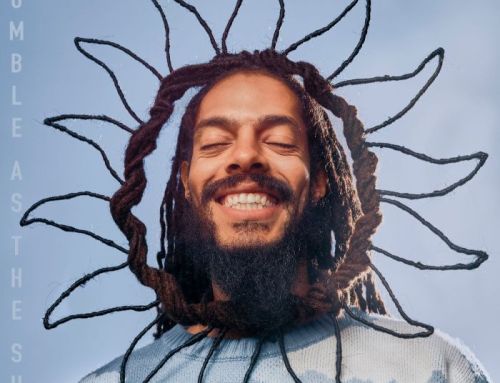
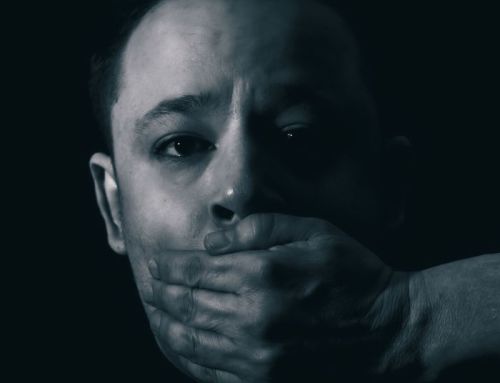
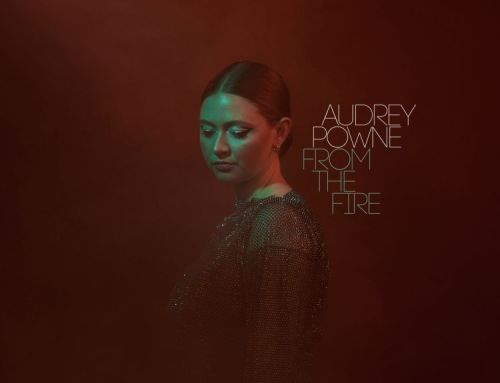
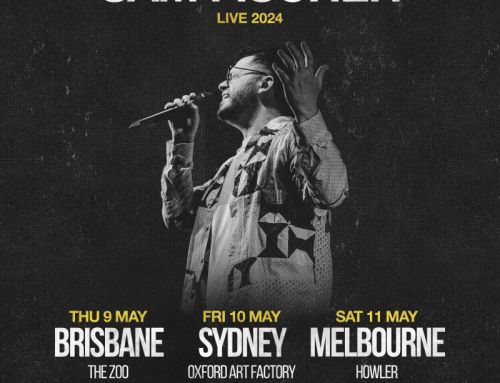
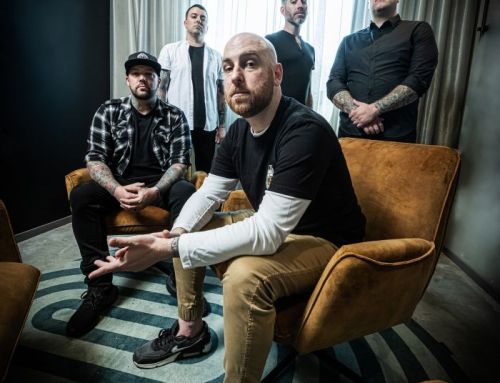
Leave A Comment